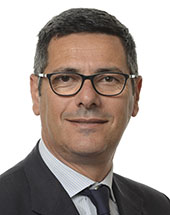
Choisissez la langue de votre document :
- bg - български
- es - español
- cs - čeština
- da - dansk
- de - Deutsch
- et - eesti keel
- el - ελληνικά
- en - English
- fr - français
- ga - Gaeilge
- hr - hrvatski
- it - italiano
- lv - latviešu valoda
- lt - lietuvių kalba
- hu - magyar
- mt - Malti
- nl - Nederlands
- pl - polski
- pt - português
- ro - română
- sk - slovenčina
- sl - slovenščina
- fi - suomi
- sv - svenska
|
| Procedură : 2014/0011(COD) |
| Stadii ale documentului : A8-0029/2015 | ||||||
Texte depuse : A8-0029/2015 | Dezbateri : PV 07/07/2015 - 12CRE 07/07/2015 - 12 | Voturi : PV 08/07/2015 - 4.7CRE 08/07/2015 - 4.7 Explicaţii privind voturile | Texte adoptate : P8_TA(2015)0258 | |||
| Stenograma dezbaterilor | |
| Marţi, 7 iulie 2015 - Strasbourg |
|
| Aviz juridic - Politica de confidențialitate |













































